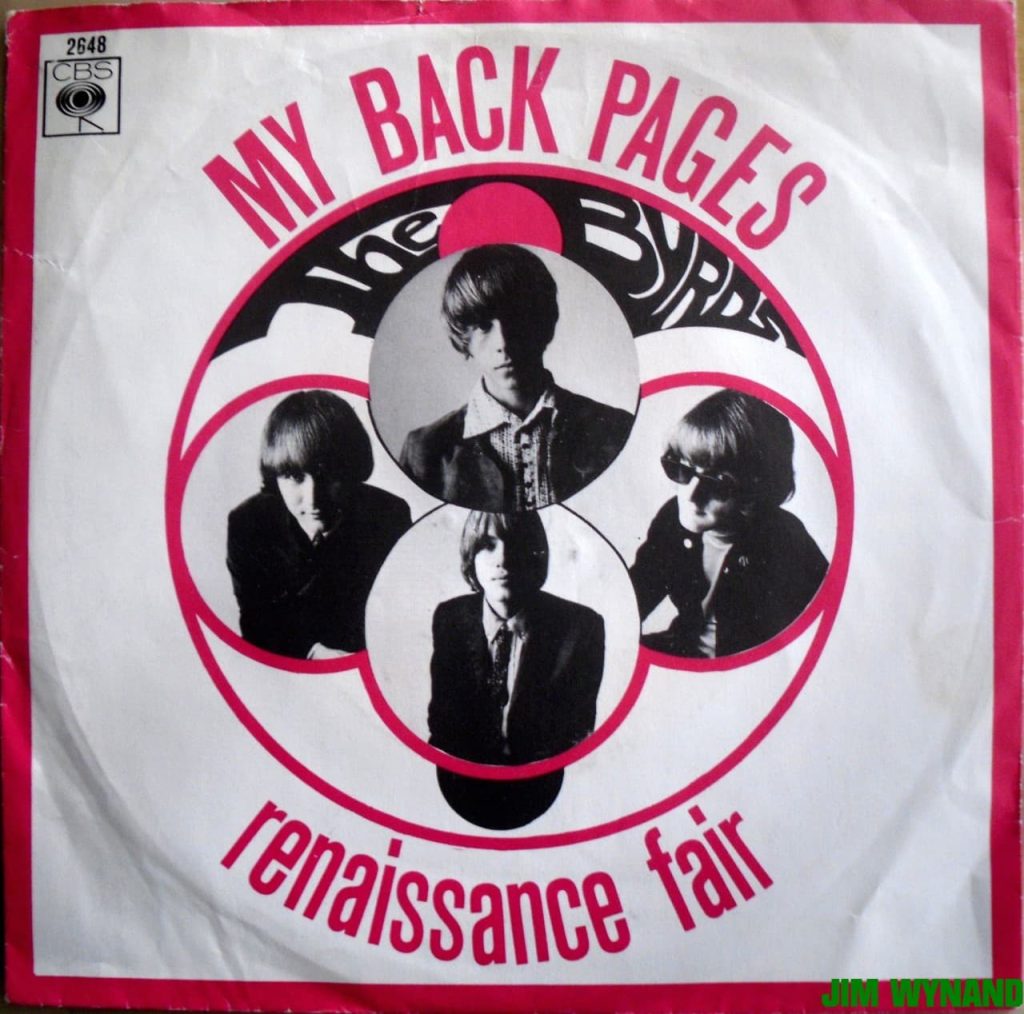
“My Back Pages” – The Byrds’ Reflective Journey Through Change and Self-Discovery
The Byrds’ version of “My Back Pages,” released in 1967 as part of their album Younger Than Yesterday, is a brilliant reinterpretation of Bob Dylan’s introspective song. Originally written and recorded by Dylan in 1964, “My Back Pages” reflects his transition from protest songs toward more personal, introspective themes, and The Byrds’ version became one of their defining moments as they shifted into new musical territories. The song reached No. 30 on the Billboard Hot 100, maintaining its relevance in the folk-rock canon and further popularizing Dylan’s profound lyrics among broader audiences.
Opening with Roger McGuinn’s iconic 12-string Rickenbacker guitar, The Byrds’ arrangement brings a buoyant, jangly sound to the track, which contrasts with Dylan’s more somber acoustic original. McGuinn’s shimmering guitar riff weaves seamlessly with the harmonies of the band, adding a layer of youthful optimism to the song’s reflective and somewhat regretful lyrics. The Byrds’ characteristic vocal harmony is at its finest here, capturing both the complexity of the lyrics and the inherent beauty in their simplicity. “I was so much older then, I’m younger than that now,” they sing in unison, giving voice to Dylan’s poetic exploration of personal growth and self-reflection.
The lyrics of “My Back Pages” are famously layered and have been interpreted in multiple ways, though the central theme revolves around the realization that with age often comes humility. Dylan’s words capture the recognition that idealism, though powerful, is often tempered by experience. Lines like “A self-ordained professor’s tongue / Too serious to fool” critique the tendency to view the world in rigid terms, while the refrain expresses a poignant realization that life’s complexities rarely fit into simple answers. This message struck a chord during the 1960s, resonating with a generation caught in the crosscurrents of social change, self-discovery, and political upheaval.
The Byrds’ choice to cover “My Back Pages” was a bold one, given the song’s deep introspection and Dylan’s already prominent legacy. By transforming it into a folk-rock anthem, The Byrds bring new life to the lyrics, infusing the song with a sense of optimism and possibility. Their arrangement balances the introspective nature of the lyrics with a spirited rhythm, suggesting that while self-reflection may reveal uncertainties, it can also lead to a sense of freedom and renewal. The contrast between the jangly guitars and the contemplative lyrics gives the song a unique quality, bridging the tension between youthful enthusiasm and mature introspection.
The song’s release during the peak of the 1960s countercultural movement added to its resonance, as audiences were grappling with shifting ideals and questioning established beliefs. “My Back Pages” reflects the journey from rigid conviction to an acceptance of ambiguity—a journey that was especially relevant to those rethinking societal norms and personal identity. The Byrds’ version became a staple of their live performances, further cementing its place as an anthem of introspective freedom within the folk-rock genre.
In many ways, “My Back Pages” represents the evolution of The Byrds as well. The band’s sound had grown since their debut, incorporating a wider range of influences and a more mature perspective. While still young, they were beginning to reflect on their own experiences and choices, echoing Dylan’s sentiment of being “younger than that now.” The song stands as a powerful reminder that growth often involves unlearning and that embracing new perspectives is a lifelong process.
Today, “My Back Pages” endures as a testament to The Byrds’ talent for musical adaptation and lyrical expression. The song’s timeless message, combined with The Byrds’ intricate harmonies and distinct sound, has solidified it as one of the most cherished interpretations in both their catalog and Dylan’s songwriting legacy. It speaks to the universal journey of self-discovery, reminding listeners that each stage of life brings its own revelations and that, in the words of Dylan himself, sometimes we are indeed “younger than that now.”